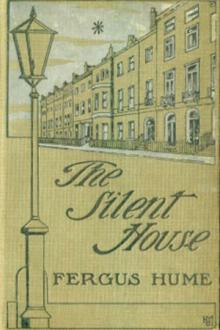Genre Fiction. Page - 232
All entire books of the Fiction genre on your device.

y anxiously."None, I assure you. I have been well for some time, but did not leave because I preferred to stay there, than to return to Lady Sydney." "No quarrel, I hope? No trouble of any kind?" "No quarrel, but--well, why not? You have a right to know, and I will not make a foolish mystery out of a very simple thing. As your family, only, is present, I may tell the truth. I did not go back on the young gentleman's account. Please ask no more." "Ah, I see.

and toAgatha, who was looking charming in white and pink,with glittering wheat-ears in her hair, when Wilsoncame twitching at my sleeve."You want something positive, Gilroy," said he, drawingme apart into a corner. "My dear fellow, I have aphenomenon--a phenomenon!" I should have been more impressed had I not heard thesame before. His sanguine spirit turns every fire-flyinto a star. "No possible question about the bona fides this time,"said he, in answer, perhaps,

the saloon he heard a snicker from behind him. He, thinking it was one of his late tormentors, paid no attention to it. Then a cynical, biting laugh stung him. He wheeled, to see Shorty leaning against a tree, a sneering leer on his flushed face. Shorty's right hand was suspended above his holster, hooked to his belt by the thumb-a favorite position of his when expecting trouble."One of yore reg'lar habits?" he drawled. Jimmy began to dust himself in silence, but his lips were

y rankling in my heart, picked my way homeward by a short cut through the dismalness of a New York slum I longed for steak and stout, slippers and a pipe, with all the pathetic keenness of a troubled soul.It was a wild, black kind of night, and the weirdness of it showed up as I passed from light to light or crossed the mouths of dim alleys leading Heaven knows to what infernal dens of mystery and crime even in this latter-day city of ours. The moon was up as far as the church steeples; large

e city council was backed by a large body of serious opinion throughout the country. A proof of this, if proof were needed, is to be found in the circumstances that gave rise to the Apologie of Sidney.The attack on the stage had been opened by the corporation and the clergy. It was soon joined by the men of letters. And the essay of Sidney was an answer neither to a town councillor, nor to a preacher, but to a former dramatist and actor. This was Stephen Gosson, author of the School of Abuse.

"But, Rod, I've been waiting to hear what he's found out ever since he went away," Fawzi protested in a hurt tone.Brangwyn and Colonel Zareff joined them. They were close friends, probably because neither of them was a native of Poictesme. The town marshal had always been reticent about his origins, but Conn guessed it was Hathor. Brangwyn's heavy-muscled body, and his ease and grace in handling it, marked him as a man of a high-gravity planet. Besides, Hathor had a permanent

up his breakfast with her own fair hands, happy for the day if her admired lodger conversed with her for a few moments before reading the morning paper. Then Miss Greeb would retire to her own sitting-room and indulge in day dreams which she well knew would never be realised. The romances she wove herself were even more marvellous than those she read in her favourite penny novelettes; but, unlike the printed tales, her romance never culminated in marriage. Poor brainless, silly, pitiful Miss

s postman when I grow up.WATCHMAN. Ha! ha! Postman, indeed! Rain or shine, rich orpoor, from house to house delivering letters--that's very greatwork! AMAL. That's what I'd like best. What makes you smile so? Oh,yes, your work is great too. When it is silent everywhere in theheat of the noonday, your gong sounds, Dong, dong, dong,-- andsometimes when I wake up at night all of a sudden and find ourlamp blown out, I can hear through the darkness your gong slowlysounding, Dong, dong, dong!

s because of the flashing fence of bayonets.Lastly, in a mealie patch, he found the spot on which the corn grows thin, where King Cetewayo breathed his last, poisoned without a doubt, as he has known for many years. It is to be seen at the Kraal, ominously named Jazi or, translated into English, "Finished." The tragedy happened long ago, but even now the quiet-faced Zulu who told the tale, looking about him as he spoke, would not tell it all. "Yes, as a young man, I was there at

ishment to the luxuriant and deadly deserts of Western Africa, and to the dull and dreary half clearings of South America, it proved itself a charm, a talisman against ennui and despondency. Impossible even to open the pages without a vision starting into view; with out drawing a picture from the pinacothek of the brain; without reviving a host of memories and reminiscences which are not the common property of travellers, however widely they may have travelled. From my dull and commonplace and